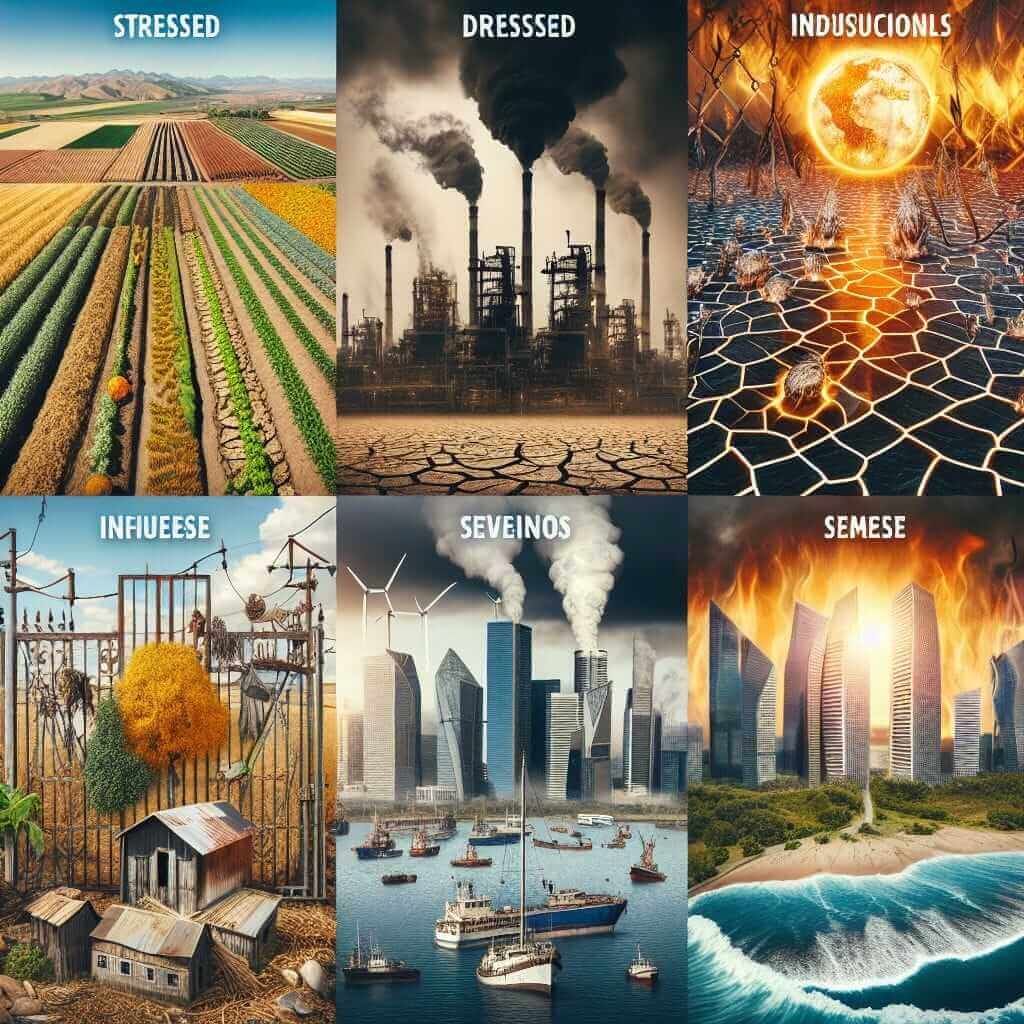The IELTS Reading test is often perceived as challenging, consisting of three reading passages gradually increasing in difficulty. A frequent and highly relevant topic in recent years has been climate change and its broad implications on various aspects of life, including global economic stability. Understanding the historical frequency of this topic can aid candidates in anticipating potential test content and preparing efficiently.
Climate change’s impact on global economic stability has been strikingly evident in various real-world scenarios, from agriculture to industry disruptions. Based on historical data, it seems plausible that similar topics will recur in future IELTS examinations.

Reading Passage and Questions
Reading Passage: Medium Text
The excerpt below aims to simulate an authentic IELTS reading section.
Effects of Climate Change on Global Economic Stability
Global economic stability is inherently linked to environmental conditions. Climate change, characterized by extreme weather patterns, rising sea levels, and unpredictable agricultural yields, has far-reaching effects on economies worldwide. This issue has increasingly garnered attention from economists, policymakers, and environmentalists alike.
The agricultural sector, a cornerstone of many developing economies, is particularly vulnerable. Changes in rainfall patterns, increased frequency of droughts, and soil degradation negatively impact crop yields. Consequently, food prices soar, exacerbating poverty and hunger in regions already marginalized. This instability transcends borders; developed nations feel the ripple effects through global food markets and humanitarian aids.
Industrial production isn’t immune to climate repercussions either. Factories depend on stable inputs and supply chains, yet extreme weather events such as hurricanes and floods disrupt these processes, halting production and escalating expenses. The 2011 floods in Thailand, for instance, resulted in a significant decrease in global electronics production, reflecting how localized climate events impact worldwide economic activities.
Additionally, climate change poses risks to financial systems. Insurance companies face substantial claims due to storm damages, resulting in higher premiums and payouts. Banks with extensive mortgage portfolios on coastal properties also face elevated risks as sea levels rise, threatening property values and thus financial stability.
Finally, the economic burden of climate change demands substantial investments in mitigation and adaptation strategies. This includes infrastructural improvements, development of sustainable technologies, and global cooperation on emission reductions. While these investments can spur innovation and job creation, they also require significant resources, posing further challenges to economic stability.
In conclusion, the intricate relationship between climate change and global economic stability necessitates comprehensive and collaborative measures worldwide. Only through proactive strategies can we mitigate these risks and fortify economic resilience against climatic adversities.
Questions
1. Multiple Choice
-
According to the passage, how does climate change primarily affect the agricultural sector?
- A. By increasing the number of workers in agriculture.
- B. By causing instability in crop yields.
- C. By reducing the occurrence of droughts.
- D. By stabilizing food prices.
-
What was one global economic impact of the 2011 floods in Thailand?
- A. Increase in agricultural output.
- B. Boost in global electronics production.
- C. Surge in global humanitarian aids.
- D. Decrease in global electronics production.
2. Identifying Information (True/False/Not Given)
- Developing countries are less affected by climate change than developed countries. (True/False/Not Given)
- The agricultural sector in developing economies benefits from climate change. (True/False/Not Given)
3. Matching Information
Match each issue with the sector impacted:
5. Agricultural Yields
6. Industrial Production
7. Financial Systems
8. Innovation and Job Creation
- A. Disruption of supply chains.
- B. Increased insurance claims.
- C. Variable crop outputs.
- D. Investment in sustainable technologies.
Answers
- B. By causing instability in crop yields.
- D. Decrease in global electronics production.
- False
- False
- C
- A
- B
- D
Common Mistakes
Here are common pitfalls students encounter with passages like the one above:
- Misinterpreting key terms like “agricultural yields” and “industrial production disruption.”
- Overlooking nuances in information presented, leading to errors in True/False/Not Given questions.
- Failing to match descriptions accurately in Matching Information section.
Vocabulary
- Yields (n): /jiːldz/ Production output or the amount produced.
- Degradation (n): /ˌdɛɡrəˈdeɪʃən/ The process by which something gets worse or is downgraded.
- Ripple effects (n): /ˈrɪpəl ɪˌfɛkts/ Secondary effects that spread through an entire system.
- Mitigation (n): /ˌmɪtɪˈɡeɪʃən/ Actions taken to reduce the severity or seriousness of a problem.
Grammar Points
Conditional Sentences
A conditional sentence often presents a condition and its potential outcome. For example:
- “If agricultural yields are affected by climate change, food prices will likely soar.”
Formation:
- Type 1: If + Simple Present, + Simple Future
- Example: If you study hard, you will pass the exam.
Tips for High Reading Scores
- Practice Skimming and Scanning: Improve your ability to quickly find key points and details within the text.
- Understand Question Types: Familiarize yourself with different question formats such as True/False/Not Given, and Summary Completion.
- Improve Vocabulary: Regularly expand your lexicon, especially with topics related to the IELTS reading sections.
- Time Management: Allocate your time wisely, don’t spend too long on any single question.
By employing these strategies, students can enhance their reading capabilities and self-assuredly face the IELTS Reading test.